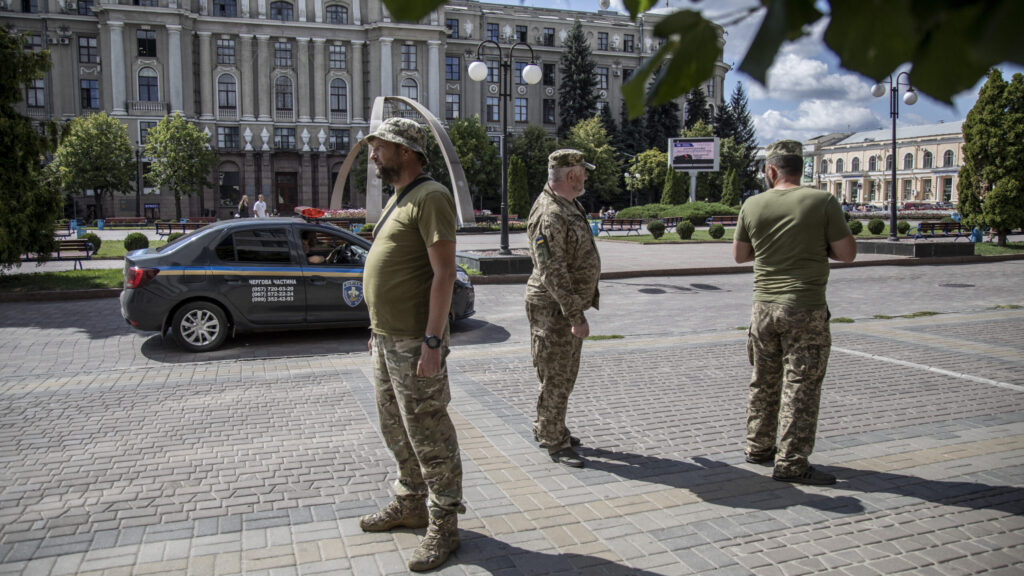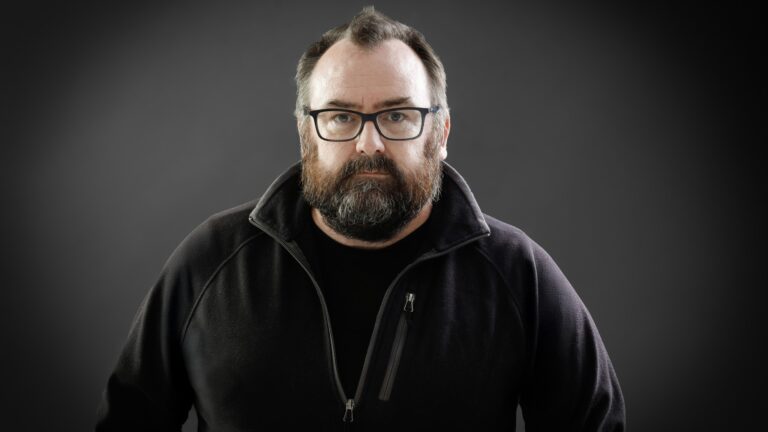Dr James Carafano is the Senior Counselor to the President for International Engagement and the EW Richardson Fellow at The Heritage Foundation. He is a leading expert in national security and foreign policy challenges, an accomplished historian and teacher, and a prolific writer and researcher. Dr Carafano is a regular guest analyst on major US network and cable television news outlets. He brings a wealth of experience from both public service and academia, including 25 years of service in the US Army, as well as membership on the Homeland Security Advisory Council from 2012 to 2014 and from 2020 to 2021.
***
James, the summit’s central premise is that we are witnessing a fundamental redistribution of power across regions and institutions, with both military and economic spheres fragmenting. What concrete trends do you believe most define this emerging international landscape?
I have always thought the ‘international order’ was a fantasy made up by political scientists. If there actually was a rules-based order where nations followed the rules, Russia would never have invaded Ukraine, China would not be threatening Taiwan and claiming it owns half the Pacific and every other nation’s fishing grounds, and Iran would not be sending surrogates to attack Israel.
Not only is there not really a consensual global order worthy of that name, the so-called ‘great powers’ do not have the capacity to impose one. No great power, the US included, can impose a hard sphere of control to protect its interests. We are not going to have a Cold War II with a divided world or empires like Imperial Britain or Russia. We live in a world where national interests drive national policy, and that is perhaps the most stable and predictable framework we can expect.
That is a fascinating point about the illusory nature of the international order. The summit emphasized the idea of ‘sovereign realism’ as an alternative. How do you see this manifesting in practice?
‘Most people think strategic autonomy means doing what you want. It does not. Strategic autonomy means taking responsibility for what you do’
This is why the US is such a proponent of ‘free and open’ spaces—because to keep these spaces free and open, the nations in these corridors have to have skin in the game: protecting their sovereign territory and cooperating with likeminded powers to common benefit. This is the realistic alternative to Beijing’s Belt and Road. The Belt and Road was about connecting China to the world for the benefit of China. Free and open spaces connect nations to each other. This project represents real ‘strategic autonomy’. Most people think strategic autonomy means doing what you want. It does not. Strategic autonomy means taking responsibility for what you do.
The summit’s theme centres on finding order in an age of chaos. Given the collapse of post-Cold War consensus and the retreat of globalism, how must conservative strategists adapt their thinking to address this new reality?
What others call chaos, I call the natural order of humanity. The opposite of independent national sovereignty is not order, it is slavery.
That is quite a stark way to put it. Can you elaborate on what you mean by that?
Conservative strategists need to stop yearning for some imagined golden age of international cooperation and start embracing the reality that nations act in their own interests. The collapse of consensus is not a bug, it is a feature. It means countries are finally being honest about their priorities instead of hiding behind multilateral rhetoric that never translated into meaningful action anyway.
One of the key panels examined whether international institutionalism is dead, with Curtis Yarvin among the speakers. What is your assessment of these multilateral structures like the UN and World Bank?
The liberal world order was supposedly anchored by international institutions that claimed universal legitimacy. Today, these structures appear increasingly impotent, irrelevant, or openly contested. We are entering a phase of ad hoc coordination and transactional diplomacy because that is what actually works.
International law is only binding when nations choose to be bound by it. The International Criminal Court (ICC) can issue all the warrants it wants, but if major powers ignore them, what is the point? Multilateral bodies have lost credibility not because of some conspiracy, but because they promised things they could not deliver and made commitments that member states were not willing to keep.
The summit also addressed migration and citizenship, with former Frontex Director Fabrice Leggeri speaking. How do you view the intersection of demographic pressure and sovereign decision-making?
This gets to the heart of what sovereignty actually means. If a nation cannot control who becomes a citizen, then what kind of sovereignty does it really have? Mass migration is not merely an economic issue, it is now central to debates about national identity and social cohesion.
‘If a nation cannot control who becomes a citizen, then what kind of sovereignty does it really have?’
The pressure to weaken citizenship and to adapt to migrants and migration comes mainly from the West itself. We have created policies that prioritize abstract humanitarian principles over the concrete interests of existing citizens. That is not sustainable, and it is not moral either. True humanitarianism requires sustainable policies that can actually be maintained over time.
Robert Wilkie spoke about NATO and strategic autonomy. What are your thoughts on European security in this new era?
European strategic autonomy is mostly a slogan at this point. Real strategic autonomy requires making hard choices about defence spending, energy security, and economic competitiveness. Most European nations are unwilling to make those choices because they conflict with other policy priorities like the Green Transition.
You mentioned the Green Transition. That seems to be a recurring theme in your analysis. How does this relate to strategic autonomy more broadly?
Stupidity is the only threat to strategic autonomy. If a nation has leaders who make bad decisions, they suffer the consequences. European nations, for example, embraced the Green Transition, which is making them less competitive, weaker, and more vulnerable while having zero impact on the global environment. That is the definition of how to lose your autonomy.
What is tragic is that the answer of Europeans is to give more power to the EU in Brussels, the very bureaucrats that made the stupid decisions to begin with.
But surely NATO remains important for transatlantic relations?
NATO remains important, but it is evolving from an ideological alliance into something more transactional. That is not necessarily bad, it is just different. Flexible partnerships based on specific interests may actually be more durable than grand alliances based on abstract values that mean different things to different countries.
Speaking of transatlantic relations, do you still see this partnership as structurally viable?
The transatlantic community is fundamental to US security and prosperity. We are no safer in a world where China and Russia run amok across Europe. But we cannot accept the allies we have, we are going to press them until we have the allies we need. Yes, that is selfish, but most Europeans know Europe needs to change on energy, borders, immigration, regulatory frameworks, and many other policies that are making Europe weaker.
There has been a big turnaround on defence spending, and that is great, but so much more is needed. That is not just my opinion, that is the view of more than half of Europe. Most Europeans may not want to leave the EU, but they are dissatisfied with what the EU is delivering. Europeans in their hearts know more EU bureaucracy is not the answer.
The heritage of American conservative foreign policy is grounded in institutional sovereignty and coalition-building. How should those traditions respond to current pressures?
We cannot go with the flow of a world that believes woke ideology and globalization are inevitable. We have to be willing to bear the criticism of not just saying the emperor has no clothes, but dressing ourselves differently.
American conservatives need to stop being defensive about putting America first. Our institutional traditions of federalism, constitutional government, and market economics are not just historical curiosities, they are practical tools for dealing with contemporary challenges. But we have to be willing to use them, even when it makes our allies uncomfortable.
‘American conservatives need to stop being defensive about putting America first’
The Budapest summit brought together diverse conservative thinkers. What conditions are necessary to translate these intellectual debates into practical stability?
We on the right still talk past each other a lot. The reality is: our common vision outweighs our particular differences. The best outcome of conferences like this is that we better understand each other and build more trust and confidence. That is the prelude to joint action.
But we need to move beyond academic discussions. The world does not care about our theoretical frameworks, it responds to power, interest, and results. Conservative intellectuals need to spend less time debating first principles and more time developing practical solutions that can actually be implemented.
With demographic transformation and technological disruption accelerating, how can conservative institutions prepare societies for these transitions?
The only answer to better demographics and riding the wave of technological change is more family formation. Strong families deliver both more and better citizens who are healthier, smarter, more resilient, and productive. Every other policy is ultimately secondary to this fundamental challenge. You can have the most sophisticated economic policies in the world, but if your society is ageing and declining, none of it matters. Conservative institutions need to focus relentlessly on creating conditions that support family formation and child-rearing.
Where do you see opportunities for conservatives to take the lead in shaping future governance structures?
Norms are less important than understanding interests and working to achieve them in a manner that is suitable, feasible, and acceptable. Firing all the political scientists might be a good start.
That is quite a statement. Are you serious about that?
Conservatives have an advantage because we understand that politics is about power, not good intentions. While progressives waste time trying to create global governance structures that will never work, we can focus on building practical coalitions based on shared interests. Central European countries understand this instinctively because they have lived through the consequences of idealistic political projects.
Wars in Ukraine and the Middle East challenge traditional structures. How should conservative foreign policy respond?
It is always a mistake to put soft and hard power in separate wallets and treat them like they are fungible. They are all just tools, and you have to use the right tools at the right time to get the right result. That is real statecraft.
Good conservative foreign policy pairs values and interests in a way that is not ideologically driven but guided by the art of seeking the best outcome between risks and rewards. It is prudent but not risk-averse. It puts the needs of the nation, not the regime or politics or profit, at the top rung of the interests that must be protected.
Finally, as we consider the future of power in this time of chaos, what lessons from past moments of upheaval might guide today’s leaders?
There is no cookbook to follow that will always give you the right answer. The right answer is the right answer, but you have to work for it every time.
‘The principles worth safeguarding are…national sovereignty, constitutional government, market economics, and the primacy of the family’
The world is one of ceaseless competition. The enemy gets a vote. There are hardly ever perfect outcomes. This is hard work. People who think they have all the answers do not understand the problem. The people with the best ideas often also have the worst ideas because they have the most ideas.
What does that mean in practical terms for conservative leaders?
Test your propositions. Try not to build a strategy based on assumptions. Do not mirror-image your enemy. Do not give in to cognitive dissonance. You really do have to understand yourself, your friends, and your enemies. There are lots of solutions that are simple, powerful, and decisive, and wrong.
Above all, remember that hope is not a plan. Conservative leaders need to base their strategies on realistic assessments of power, interest, and capability, not on wishful thinking about how the world should work. The principles worth safeguarding are those that have proven their worth through trial and adversity: national sovereignty, constitutional government, market economics, and the primacy of the family. Everything else is negotiable.
Read more of our interviews:






